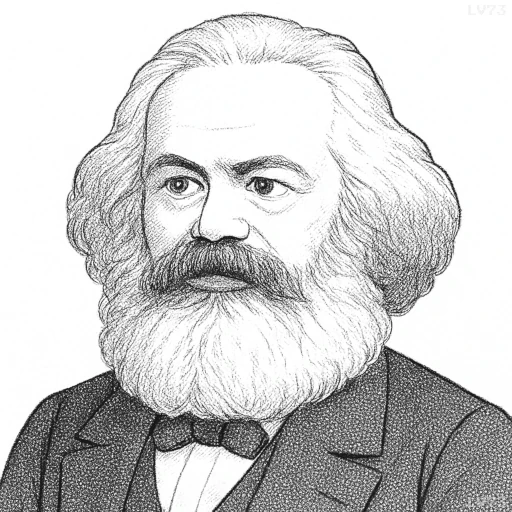“Reason has always existed, but not always in a reasonable form.”

- May 5, 1818 – March 14, 1883
- Born in the Kingdom of Prussia (Germany)
- Philosopher, economist, political thinker
table of contents
Quote
“Reason has always existed, but not always in a reasonable form.”
Explanation
In this quote, Marx reflects on the evolution of human thought and reasoning, arguing that reason itself is an inherent part of human nature, but that it has not always manifested in ways that are aligned with rationality or justice. In other words, humanity’s capacity for reason has always been present, but it has often been distorted or misused to justify irrational systems of power, oppression, or exploitation. For Marx, this can be seen in how ruling ideologies have historically used reason to support the status quo, such as through religion, political power, or capitalism, rather than promoting true human freedom and equality. The form that reason takes—how it is used and what it serves—has been shaped by material conditions and the interests of those in power.
Historically, Marx believed that reason was often employed by the ruling classes to justify social inequalities. For example, the philosophies and political ideologies of the ruling elite often presented themselves as “reasonable” but were really ways of maintaining systems of exploitation, such as feudalism or capitalism. These forms of reason served the interests of the oppressors, reinforcing systems that kept people subjugated. It was only through a critical examination of reason—through dialectical materialism, which encourages understanding the real material conditions of society—that reason could be used to promote true liberation and human emancipation. Marx’s view suggests that reason is not an absolute, unchanging force, but one that develops and evolves, becoming more aligned with human needs and freedoms over time.
In modern contexts, this idea still applies to how ideologies or systems of thought can be used to justify inequalities or unfair practices. Today, reason might be applied to economic systems, political ideologies, or cultural norms that serve the interests of a few, such as in neoliberalism, imperialism, or social inequalities. However, Marx’s quote suggests that true reason—the one that aligns with human freedom, justice, and equality—will eventually triumph as more people recognize the injustices and work to transform society. The evolution of reason, in this sense, is progressive: it moves toward a more rational, equitable form as society changes and as critical thinking challenges the systems that uphold exploitation.
Would you like to share your impressions or related stories about this quote in the comments section?
